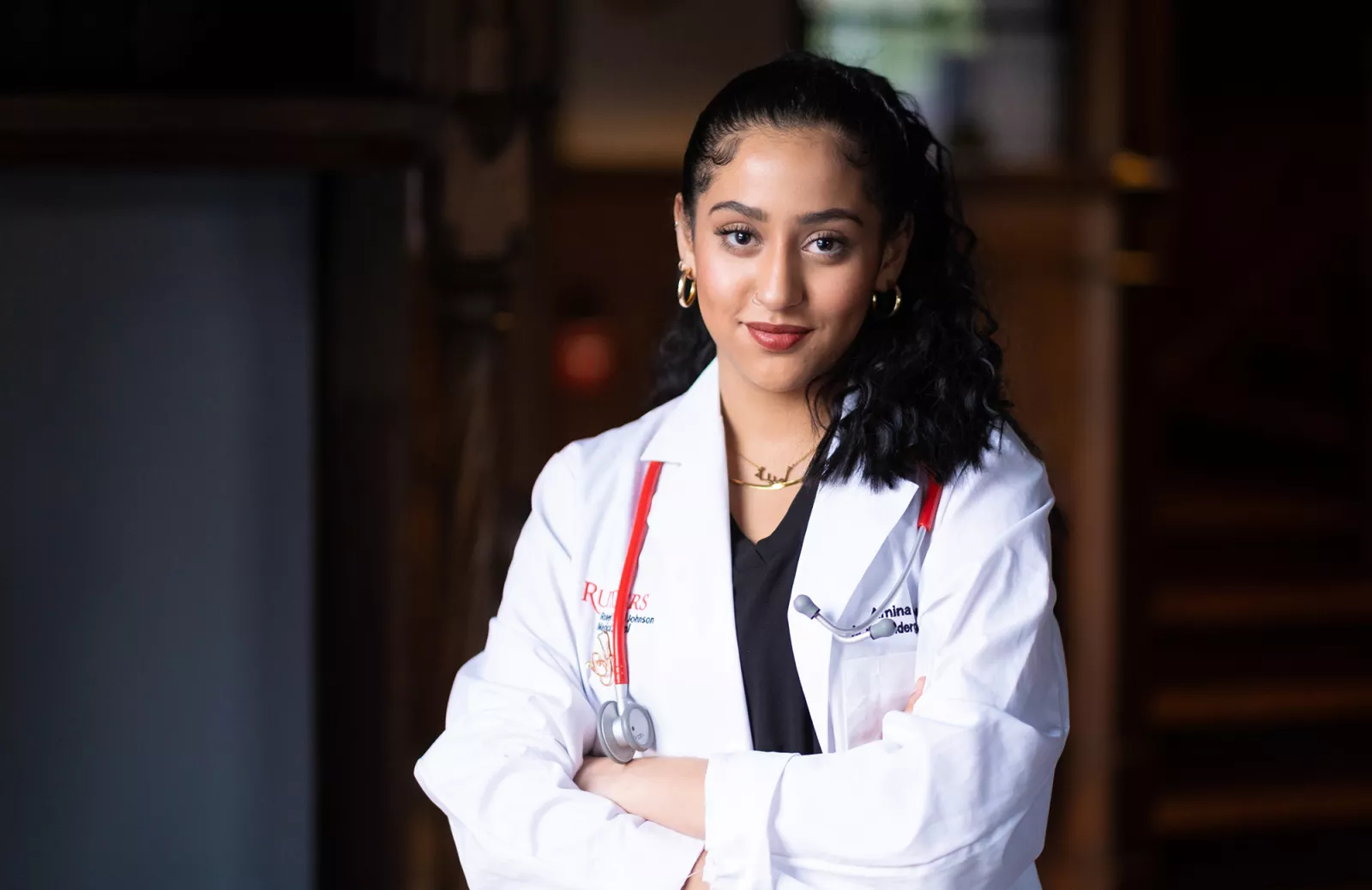
Amina Choudhry '23 is a junior at Bryn Mawr hailing from Elizabeth, N.J. She identifies as first generation, low income (FGLI) and is on the pre-med track. Last year, Amina was admitted to the Princeton-Rutgers Academic Clinical Experiences Summer (ACES) Program, an early assurance pipeline program geared toward high achieving students from groups that are underrepresented in medicine, have disadvantaged backgrounds, or are first-generation college students. The program was created in partnership with Rutgers' Robert Wood Johnson Medical School and Princeton University, and provides mentorship and an intensive internship experience.
Amina’s interest in medicine stems from the inequalities in healthcare she saw and experienced in her community. In her career, she wants to focus on addressing the social determinants of health and making healthcare more accessible to marginalized populations.
Though she was wary about the heavy workload and time commitment that accompanies a medical degree, she eventually decided medicine was the only field that would incorporate both her passion for science and her desire to connect with people.
Amina is majoring in health, science, and social justice, an independent major that she created herself. There is no standard pre-health track at Bryn Mawr, and students are advised to major in subjects that capture their intellectual passion. Amina’s goal is to “tackle the more complex questions facing physicians, including what role they should play in society, politics, and promotion of social justice." Her coursework has included a wide variety of classes focused on everything from biochemistry, anatomy, and neuroscience, to anthropology, critical disability studies, and applied ethics.
In her sophomore year, Amina enrolled in a class at Villanova to become an Emergency Medical Technician (EMT). The course was intense– Amina attended class for 12-plus hours every Saturday and studied extensively throughout the week. However, becoming an EMT provided Amina with valuable hands-on experience in patient care and clinical work. She was able to participate in ride-alongs with the Narberth Ambulance, and will soon begin volunteering with the fire station in an official capacity.
Around the same time she was taking the EMT course, Amina’s pre-health advisor, Assistant Dean Gail Glicksman, suggested she apply to the ACES program. Bryn Mawr’s relationship with the ACES program is fairly new, and Amina was the first person at Bryn Mawr to be accepted.
The program’s internship portion involves courses on everything from microscopic tissue structures to anatomy and physiology, which includes a cadaver lab. Students also attend lunch lectures by many different kinds of physicians, from pediatricians to cardiovascular surgeons, and can shadow physicians on telehealth appointments. Amina was also paired with a mentor physician to help her through the program.
In addition to attending the internship, applicants must complete several exams and go through a second round of interviews to gain admittance to Rutgers Medical School. Though the program is intense and competitive, it allows participants to circumvent the traditional medical school application process.
Says Amina, “There’s a common saying in medical school that taking medical school classes is like ‘drinking water from a fire hose,’... Nobody can ever truly be prepared for the beast that is medical school but I firmly believe ACES has given me a leap of a head start on what it means to be in a medical school environment."
This semester, Amina is taking STEM classes in biology and physics as well as classes on prison abolition and radical medicine. She feels these classes augment her experience in ACES by allowing her to move beyond the biological dimensions of illness and instead focus on how illness, health, and healing are embedded in society, politics, and culture.
Amina is currently interested in working in internal medicine in underserved communities and is considering sub-specializing in addiction medicine.
“It is not good enough for a doctor to simply know the appropriate medication to prescribe or diagnostic test to order," she says. "I believe as a physician it is vital to fully understand how social constructs such as class, gender, and race mold medical decisions and in turn affect how patients experience their care. For me it’s not simply an emblazoned white coat but rather actively and continuously committing myself to combatting the social determinants of health.”